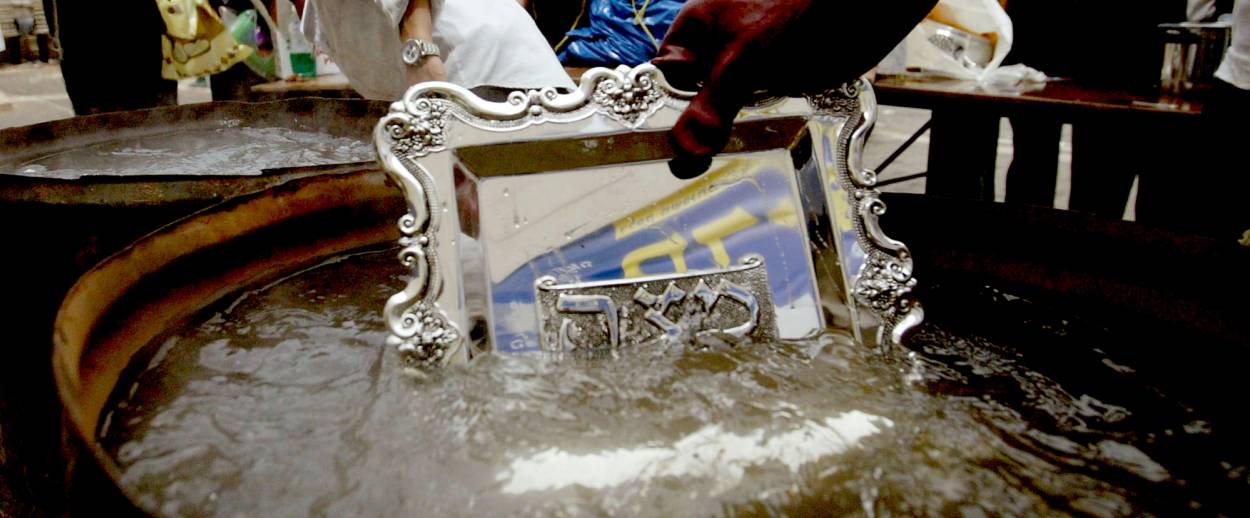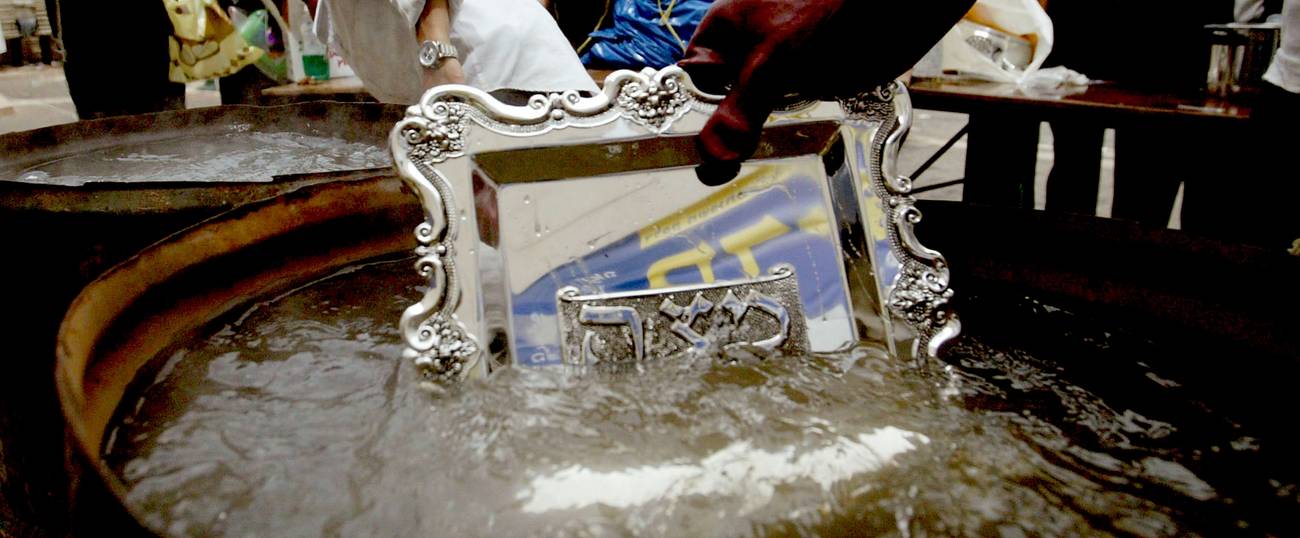How My Passover Cleaning Became a Spiritual Reckoning
As we move from slavery to freedom and from past to future on our journey to redemption, we need to deal critically with the dark elements of our history




De-cluttering has become an integral part of my obsessive Passover cleaning ritual. As the holiday approaches, I sift through overstuffed closets, drawers, and bookcases for stuff to donate, toss, or sell.
This year, I came across my beloved vintage set of Bobbsey Twins books as I was cleaning out bookcase in my basement. I pictured my eight-year-old self reading about the many adventures of the two pairs of twins—Flossie and Freddie, and Nan and Bert.
It’s time to give away these childhood books, I thought to myself while recalling, vividly, the thrill I used to feel when I received a new book for my birthday or Hanukkah.
But still I wondered: Can these stories still interest sophisticated, 21st century, Tablet-carrying kids?
I flipped through the dusty pages of the Bobbsey Twins books, determined to find their relevance today. Then I discovered an unexpected dark truth that made me cringe: My beloved childhood books reek of ugly racism, offensive language, and ethnic and gender stereotyping.
The only African-Americans in the entire series are “colored” servants. Dinah, “the fat, jolly cook” and her handyman husband, Sam, speak in a dialect that made my stomach churn. Mexicans eat chicken and rice, and women do not work outside the home.
In The Bobbsey Twins in the Land of Cotton, the twins stay at a southern plantation where their servant is Mammy ‘Liza, “a darling old mammy who looked like someone right out of a story book.” They watch cotton pickers who sing and “seem so happy” because “cotton picking is healthful exercise.”
My childhood memories were shattered but I learned valuable lessons. Rather than burying history, we must learn from it—whether it’s racist children’s literature or disturbing Torah passages about slavery, homosexuality, and violence.
These old books have gotten me thinking about Passover and our duty to tell our story. During Passover, as we move from slavery to freedom and from past to future on our journey to redemption, we need to deal critically with these dark elements of our history.
We can’t afford to whitewash the past but must confront inconvenient truths head-on. It’s the only way to move forward, transform ourselves, and bring about redemption, especially in today’s fear-mongering climate of racial tension, hatred, and religious strife.
We can and should learn from the conversations that have started nationwide. Amherst College ditched its mascot, Lord Jeffrey Amherst, who advocated using smallpox as a way to eradicate Native Americans during the French and Indian War. Harvard Law School is dropping its controversial seal that pays homage to its slave-owner benefactor, Isaac Royall, Jr. High school sports teams across the U.S. have eliminated “Redskin” or “Redmen” nicknames and school mascots. When it comes to homosexuality, we continue to witness progress. The White House recently hired its first openly transgender staffer. Even ultra-Orthodox society is beginning to confront the issue of homosexuality. And more and more women are breaking the silence on reporting date rape and sexual abuse.
Hopefully, there will be more of this with each Passover to come.
Instead of recoiling from a tarnished historical past, we should teach our children by sharing our history—including personal experiences of anti-Semitism, sexual discrimination, homophobia, and the like.
There’s no better place for such conversations to take place than around the Passover seder table. If we are truly serious about putting our Jewish values into action, we must sustain these conversations—in our homes, synagogues, and communal settings—long after our Seder is done.
When we clean up our detritus, we never know what objects we may find, where our memories may take us, and what illusions may be destroyed. If we want to create a positive future, it’s critical to open up the past. That’s the lesson Passover cleaning has taught me this year.
Paula Jacobs is a writer in the Boston area.